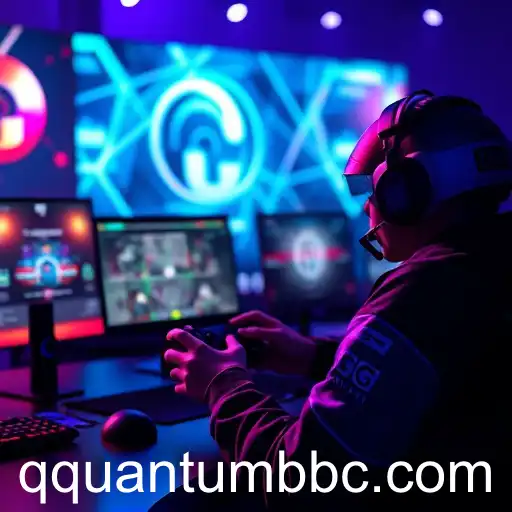
Exploring the impact of quantum computing and interactive platforms on the digital gaming landscape.
In recent years, the gaming industry has experienced transformative growth, largely fueled by advancements in technology and a growing appetite for innovation. One such revolution is the integration of quantum computing technologies in gaming, marked by platforms like 'quantumbbc'. As the digital world moves into an era of quantum possibilities, we see significant impacts on how games are developed, played, and experienced.
The concept of quantum computing has long been a topic of fascination, promising immense computational power that surpasses traditional computers. In gaming, this translates into simulations of unprecedented scale and complexity, allowing for expansive virtual worlds that offer more interactive and realistic experiences. 'quantumbbc' epitomizes this shift, pushing the boundaries of game design and player engagement. With quantum-enhanced algorithms, developers can create environments previously deemed too exhaustive for conventional systems, thus opening new avenues for storytelling and gameplay.
Furthermore, the proliferation of quantum technologies in gaming platforms coincides with the digital transformation seen across the entertainment industry. As audiences demand more immersive and dynamic experiences, the crossover between quantum computing and gaming likens itself to the impact internet streaming had on conventional media consumption. Centers of entertainment are gradually acknowledging the significance of these emerging technologies, reshaping not only their existing ecosystems but also paving the way for a new genre of digital entertainment.
However, the phase of quantum integration is not without its challenges. The high costs and technical expertise required for integrating quantum computing present hurdles that industry leaders must navigate. Additionally, the focus on evolving such advanced games raises questions about accessibility and digital equity, ensuring that this next generation of gaming does not result in a digital divide.
Yet, as we stand on the cusp of this revolution, companies like 'quantumbbc' are determined to make quantum gaming a mainstream phenomenon. Their innovative frameworks aim to incorporate machine learning and AI to refine game mechanics and plotlines that dynamically adapt to a player's choices, providing personalized experiences like never before.
In conclusion, as quantum computing continues to reshape various sectors, its influence on the gaming industry symbolizes the start of a new chapter in digital interaction. With platforms like 'quantumbbc' leading the way, the future promises a thrilling panorama where the digital and real intertwine like never imagined. The implications are vast, not just for recreation, but for how societies will interact with digital media in years to come.




